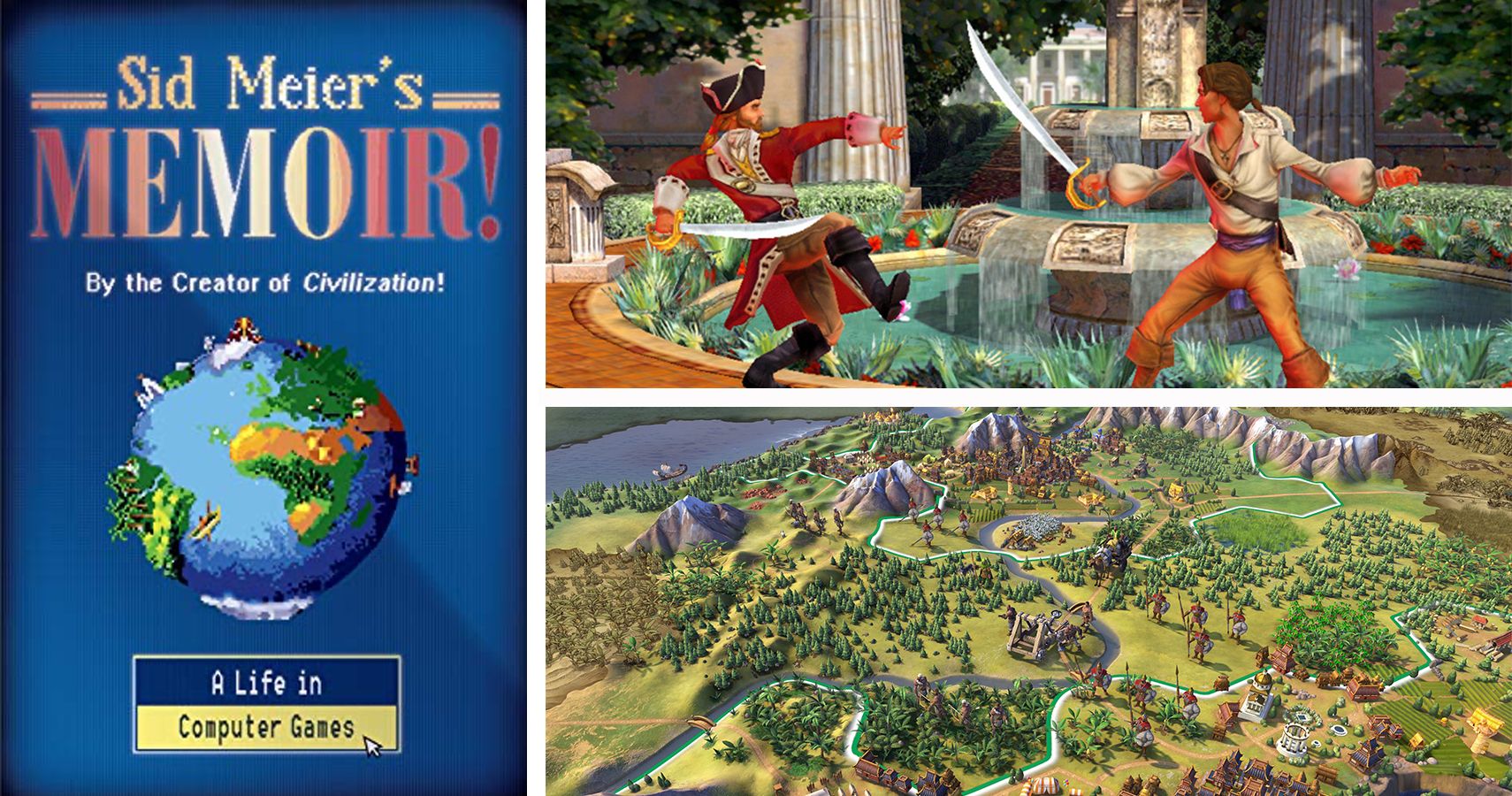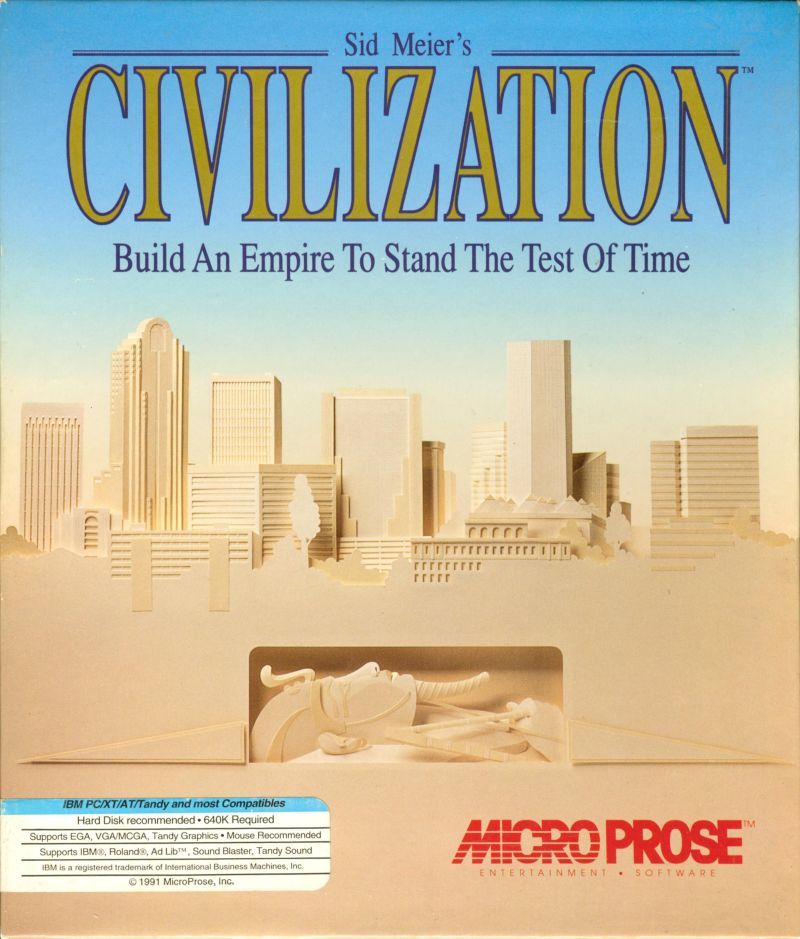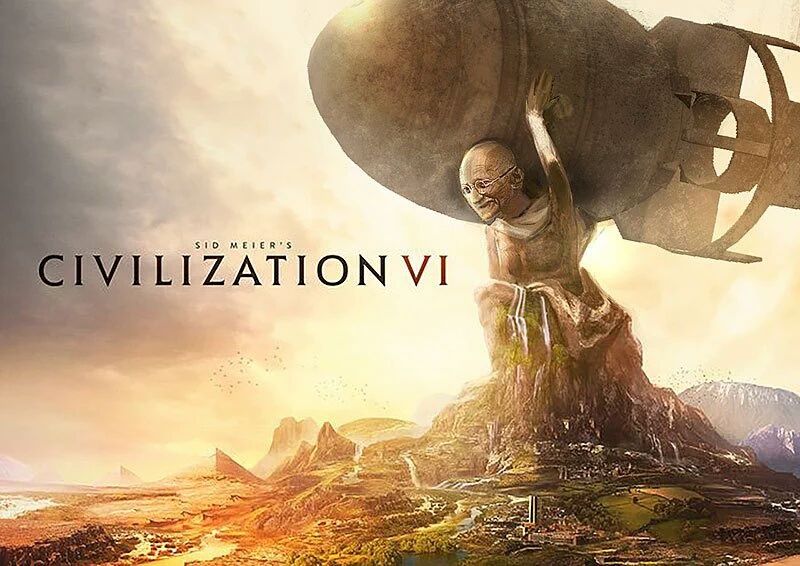In many ways, Sid Meier seems larger than life. With his name attributed to more than 50 video games over the course of his 30-plus years as a game developer, he long ago proved himself a special presence in the gaming industry. From flight simulations to railroad management to pirate debauchery to world domination, Meier’s unique approach to game design ultimately boils down to one core strategy: finding the fun.
It’s almost puzzling to try to imagine how someone so seemingly introverted came to be such a powerful force in the gaming community. Even to this day, the choice to attach any single person’s name to any artistic work is a move typically limited to the realm of movies, books, music, and fine art. However, it's the quality of games mixed with their quantity that holds the Sid Meier name worthy of distinction in the gaming space.
Meier is not oblivious to the fact that many game fans paint him as a larger-than-life presence whose games fundamentally transformed their lives. But in his new memoir, titled Sid Meier's Memoir!: A Life in Computer Games, he comes across as quite grounded. In the book, he reflects on the childhood experiences that shaped his interests in railroads and music and how ideas like those would continue to evolve as he continued to produce more and more games. He's thoughtful and introspective, unlike the so-called "rockstar game developers" one might imagine running the show.
Particularly in memoirs from people with some degree of established fame or notoriety, the narrator can come across as guarded. But instead, Sid Meier’s Memoir! presents an honest portrayal of the life of someone who loves making video games and managed to share that joy with the world. If anything, it almost seems too easy… one can imagine the world would be a very different place if every single person were able to make a living doing only things they truly enjoyed.
And, in reading between the lines, perhaps that’s the overall point. Despite his perceived brilliance and unique ability to develop gameplay mechanics that effectively tap into the human psyche, he’s just a programmer who makes video games that he thinks are fun. And, if Meier can leverage his passion into a lucrative career that impacts the lives of people all over the world, what’s to stop anyone else from doing the same?
The images in the book offer a glimpse into the spirit of the times. A particularly funny photo that served as an ad to recruit developers features Meier holding a wad of cash and sitting under dollar signs, something that would be tough to imagine in today’s current landscape.
It’s also full of wonderful and funny anecdotes, such as the story of dinosaur-related kismet when he was working on an ill-fated game about dinosaurs. In fact, the story behind the dinosaur game may be the most humanizing of all — it’s humbling for a game designer to know that there’s one subject even Sid Meier has struggled to crack.
He also doesn’t shy away from the controversies surrounding his games. Instead, he shows respect for the people who’ve pointed out legitimate cultural blind spots. Several anecdotes serve to highlight the two-way relationship to the fans of his games, such as the story of a woman who saved her family from potential catastrophe when she smelled smoke while playing a late-night game of Civilization.
Ultimately, the missteps are merely part of the bigger story. It’s a reminder that the path to success isn’t linear.
While it would be natural to expect a huge eureka moment that unifies the author’s approach to developing video games, it's more like a series of smaller eureka moments that send him down a different path (or skill tree, for those who prefer to think of it that way).
The myth that a programming issue led Civilzation’s Mahatma Gandhi to become an extremely aggressive nuclear warlord is a terrific example of Meier’s philosophy in play. While the story isn't true, the Civilization community continues to embrace the memes because it's become such a fun piece of community lore.
Of course, the book leaves the sense that there’s still much more to tell — Meier barely touches on the development of Civilization VI — but the author also makes it clear his story is far from over. One could argue that the book is simply an extension of the story he was already telling, first through flight, then through railroads, and all the way through exoplanet missions in Civilization VI.
Regardless, to see it all through Meier’s own eyes is quite a treat. The book is about his life, but more so, it’s a crash course in game design philosophy. Touching on everything from censorship to gaming addiction to human connection, the thesis that it’s all about finding the fun applies to both game development and real life.
It’s an interesting thought experiment to consider the role that strategy plays in his life. Much like a game of Civilization, his path to success required numerous complex decisions based on all available information. While he found himself entrenched in a battle — whether that be an internal battle with burnout or an external battle over intellectual property — it’s clear that taking on these challenges set him up for an undeniable victory.
Sid Meier's Memoir!: A Life in Computer Games was released on Sept. 8, 2020. It is available in hardback, digital and audio formats for purchase via Amazon, Barnes & Noble and other major retailers. The author of this review did not receive a review copy and purchased the book of her own accord.




